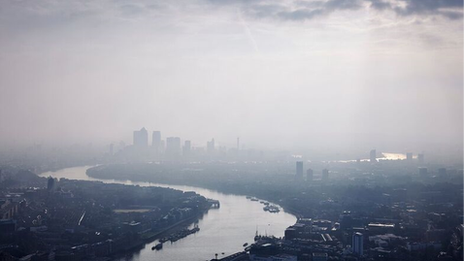ULEZ: Mayor announces proposals for London-wide pollution charge
- Published
- comments
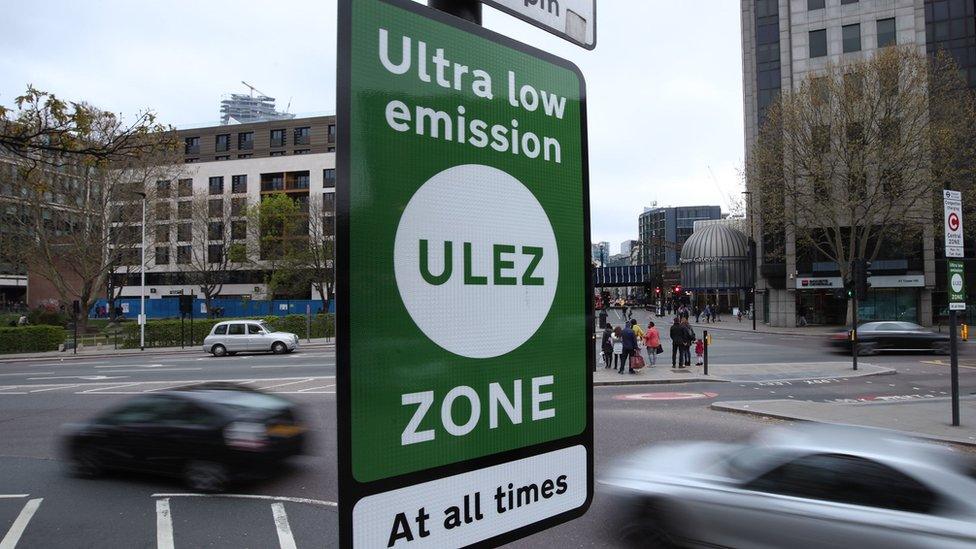
Between 20,000 and 40,000 vehicles a day are expected to be affected by the extension
The mayor of London has announced plans to extend the Ultra Low Emission Zone (ULEZ) across the whole of London.
Under the current scheme, drivers of older, more polluting vehicles are being charged to enter London's north and south-circular orbital roads.
New proposals will see the scheme extend to the edges of London's boroughs in 2023.
The Mayor of London, Sadiq Khan, said there is "no more time to waste" in tackling London's air pollution.
Most vehicles which are not compliant will have to pay £12.50 for entering the area each day, in addition to the congestion charge.
Mr Khan said: "The triple challenges of tackling toxic air pollution, the climate emergency and congestion mean we need to further reduce emissions from vehicles in London.
"This is also a matter of social justice - with air pollution hitting the poorest communities the hardest.
"I believe the proposal to extend the ULEZ London-wide will have the biggest effect on emissions and congestion relative to the potential financial impact on Londoners as a whole."

Rosamund Adoo-Kissi-Debrah's daughter Ella became the first person in the UK to have air pollution listed as a cause of death.
She said: "By taking action and expanding the ULEZ to include the south circular and the whole of London, people will be encouraged to get rid of their dirty vehicles, and children like Ella will breathe more easily and have a better quality of life."

Analysis
Tom Edwards, BBC London Transport Correspondent
This is a huge radical move. Sadiq Khan's administration is adamant they're doing it as it's the right thing to do.
It won't be universally popular but there is a groundswell of opinion that polluting vehicles should not be in cities. Clean air campaigners thought the Mayor should have gone this far years ago.
When the ULEZ was expanded last year the initial findings found it cut pollution and cut traffic levels, not only within the zone, but in the surrounding areas and boundary roads.
So this extension will also impact vehicle choice in the Home Counties and probably beyond.
Politically it's also interesting as this will be implemented in the run-up to the next mayoral election in 2024.
How do other mayoral candidates tackle that? It's never a great look to support the person you're trying to beat, but can they oppose it and be seen to be against clean air?

Michael Lloyd, from the Federation of Small Businesses, said a ULEZ expansion would only add to already ballooning costs for companies, which would be passed on to customers.
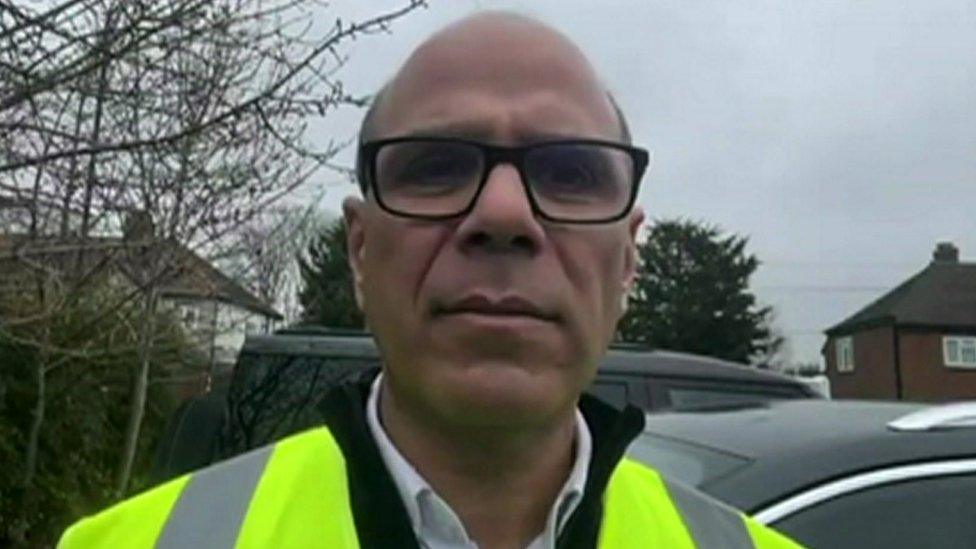
Michael Lloyd said the new charges would hit the pockets of businesses in London
He said: "At a time when a lot of businesses are on their knees, where are they going to find the money for this?
"Costs are going up exponentially. We can't afford it."
He also warned of the impact on staff.
He added: "It's going to affect them in their day-to-day lives, going shopping and just travelling anywhere.
"Most of them don't have the ability to buy electric cars or to even put charging points near their houses because they don't live in houses with driveways."
City Hall estimates extending ULEZ will reduce the number of the most polluting cars on London's roads by between an additional 20,000 and 40,000 a day.
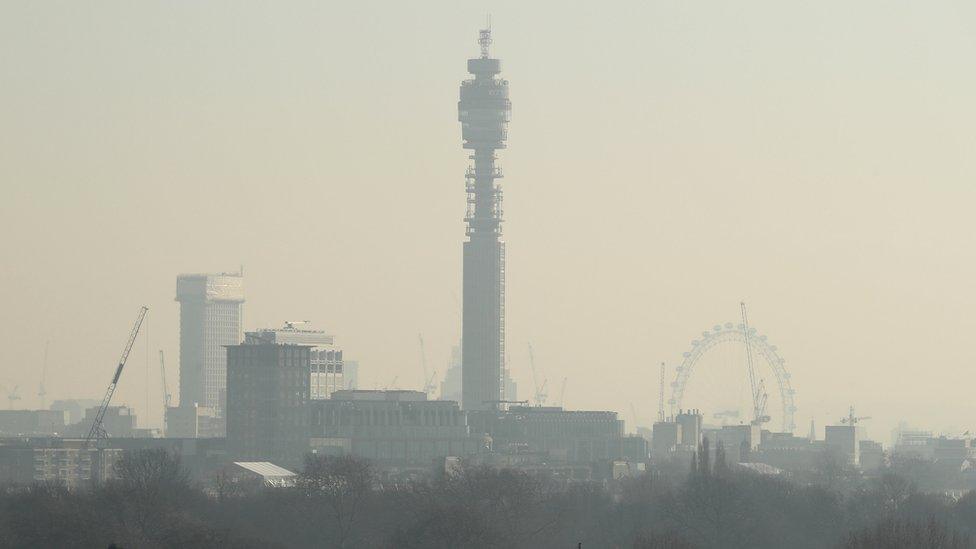
The original ULEZ in central London saw the number of cleaner vehicles increase from 39% in 2017 to 80%
This could prevent 550,000 Londoners from developing diseases attributable to air pollution over the next 30 years, according to estimates from the mayor's office.
A London-wide ULEZ would also remove between 285 and 330 tonnes of the dangerous nitrogen oxide emissions from London's air, while between 135,000 to 150,000 tonnes of CO2 emissions would be removed, according to City Hall.
The mayor promised to introduce "the biggest" car scrappage scheme feasible "to help Londoners on low incomes, disabled Londoners and businesses" adapt to the new scheme.
Vehicles can be checked using TfL's online checker, external but, broadly speaking, those which are non-compliant are:
Motorbikes that do not meet Euro 3 standards (pre-2007 vehicles)
Petrol cars and vans that do not meet Euro 4 standards (vehicles pre-2006)
Diesel cars and vans that do not meet Euro 6 standards (vehicles pre-2015)
Buses, coaches and lorries will need to meet or exceed the Euro 6 standards or pay £100 a day
Anybody who does not pay the £12.50 charge will face a fine of £160, although a first offence may result in only a warning letter.
Transport for London had also investigated a possible pay-per-mile road pricing scheme and a low-level daily Clean Air Charge for "all but the cleanest vehicles".
The expansion proposals will now be subject to a public and stakeholder consultation.
Related topics
- Published25 October 2021
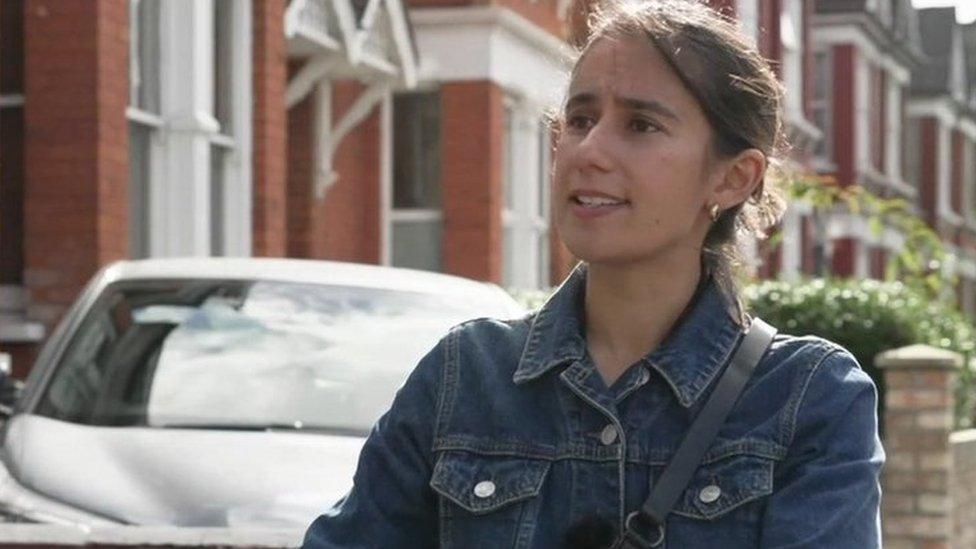
- Published19 October 2021

- Published5 April 2019
- Published26 March 2019
- Published15 November 2018
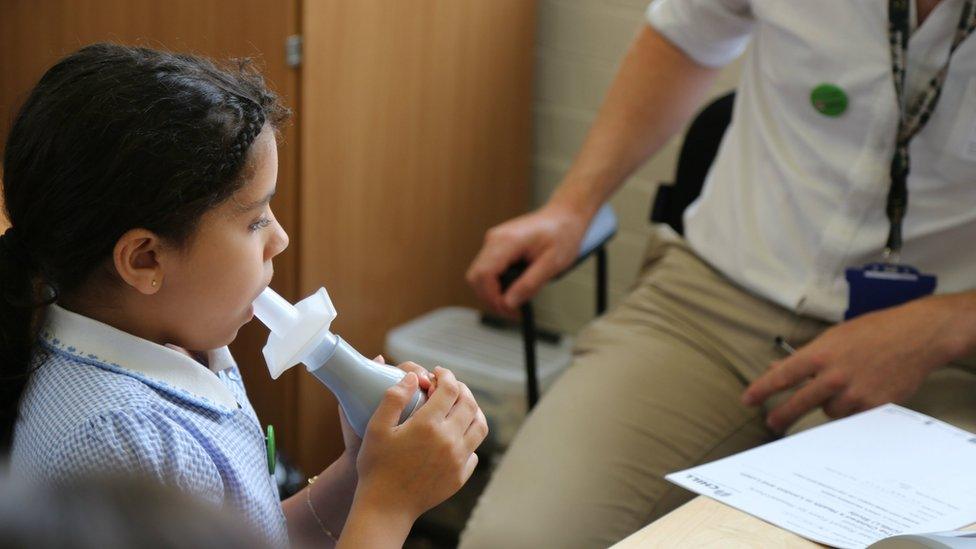
- Published14 January 2019
